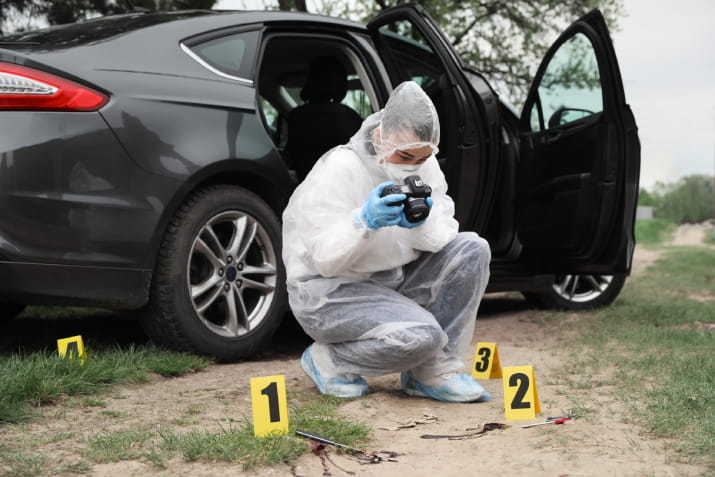Your guide to Year 10 work experience
Work experience can give you a real-life taste of a job and industry that you are curious about. Here’s how to set yourself up for a good week.

If you’re in Year 10 or not far off, it’s a great time to start thinking about where you might like to do your work experience. But how are you meant to go about finding a place that’s a good fit?
Here’s everything you need to know about what to expect from work experience, how to land a good placement, and how you can get the most out of it.
What is work experience?
Work experience is a short work placement undertaken by many Australian high school students, usually in Year 10 or Year 9. It will likely go for one or two weeks, but the exact arrangement will depend on your state and your school.
It gives you a unique opportunity to see what it’s like to work in a profession you’re interested in—so you can start planning your future after high school.
What is the point of Year 10 work experience?
Work experience is designed to get you out of the classroom and give you a chance to learn what it’s like to be in a real workplace.
You’ll be able to work alongside people in the industry that you might one day be part of, gain some new skills, and build confidence in yourself. It can also be a great thing to put on your resume.
Where can you do work experience in Year 10?
Honestly, the possibilities are pretty endless. There are all kinds of organisations that are happy to take on work experience students—so it’s worth dreaming big.
Think about the kind of job you’d like to have one day. You may be curious about becoming a zookeeper or an engineer or a journalist. Think about what excites you as a possible career path and then work backwards from there.
You will have to stay a little bit realistic, though. It may sound fun to learn how to be a scuba instructor on the Great Barrier Reef—but if you live nowhere near there it might be hard to make it work.
Think about other possibilities that could be a step in the right direction. Perhaps you’re generally interested in marine life and there might be a university that’s closer to you with a marine biology department. Or maybe your city has an aquarium that you could contact.
It's worth remembering that you may not get your ideal choice of placement—but, even if you end up somewhere that’s low down on your list, you’ll still learn a lot and meet some interesting people.
| Related reading: The power of microcredentials for high school students |
How to decide where to do work experience
Some people know exactly where they’d like to do their work experience and others have a harder time choosing. It can be a little daunting to think about.
If you’re not quite sure where you want to end up, consider writing a list of all the professions you are interested in and then narrowing down to one or two that you’re most passionate about.
Then, start researching companies or organisations that are in your local area—or don’t involve too much commuting time. Write a list of any that look interesting to you.
It’s also a good time to start thinking about the tertiary study you could do after high school to get into the career you’re keen on—and about how the subjects you’re taking can set you up to get there.
If you still feel totally lost, your school careers counsellor may be able to help you out and give you some ideas.
| Related reading: How to get into uni without an ATAR |
How to apply for work experience in Year 10
After you’ve decided where you’d like to go, and you’ve got a shortlist of places that look interesting, you can start reaching out to them. You might like to call or email to introduce yourself and tell them why you’re interested in a work placement with them and the dates that you’ll be available.
It may seem a little nerve-wracking and you might not get a yes straight away but try to remember that most people will be flattered to hear that a student is interested in working with them at their organisation. Keep going until you find somewhere that’s a good fit.
Your school might also give you some tips on how to reach out to people.
How to get the most out of work experience
After you’ve done the hard yards of contacting businesses and got a ‘yes’, you’re ready to start preparing for the week.
Have a think about what to wear (tip: keep it neat and tidy) and what you’ll take with you. If you’re unsure, you can ask the person you’ll be working with what you’ll need.
Remember that you’re there to learn, not impress anyone, so people will be happy to answer any questions you have—even if they seem silly.
Most importantly, try to have fun and enjoy the experience. It’s okay if it doesn’t end up meeting your expectations or if the placement you get isn’t your first choice, because you’ll still learn heaps—even if it’s what you don’t want to do!
Want to explore what life could look like after high school? Discover online study options available with leading universities.



